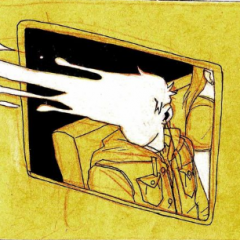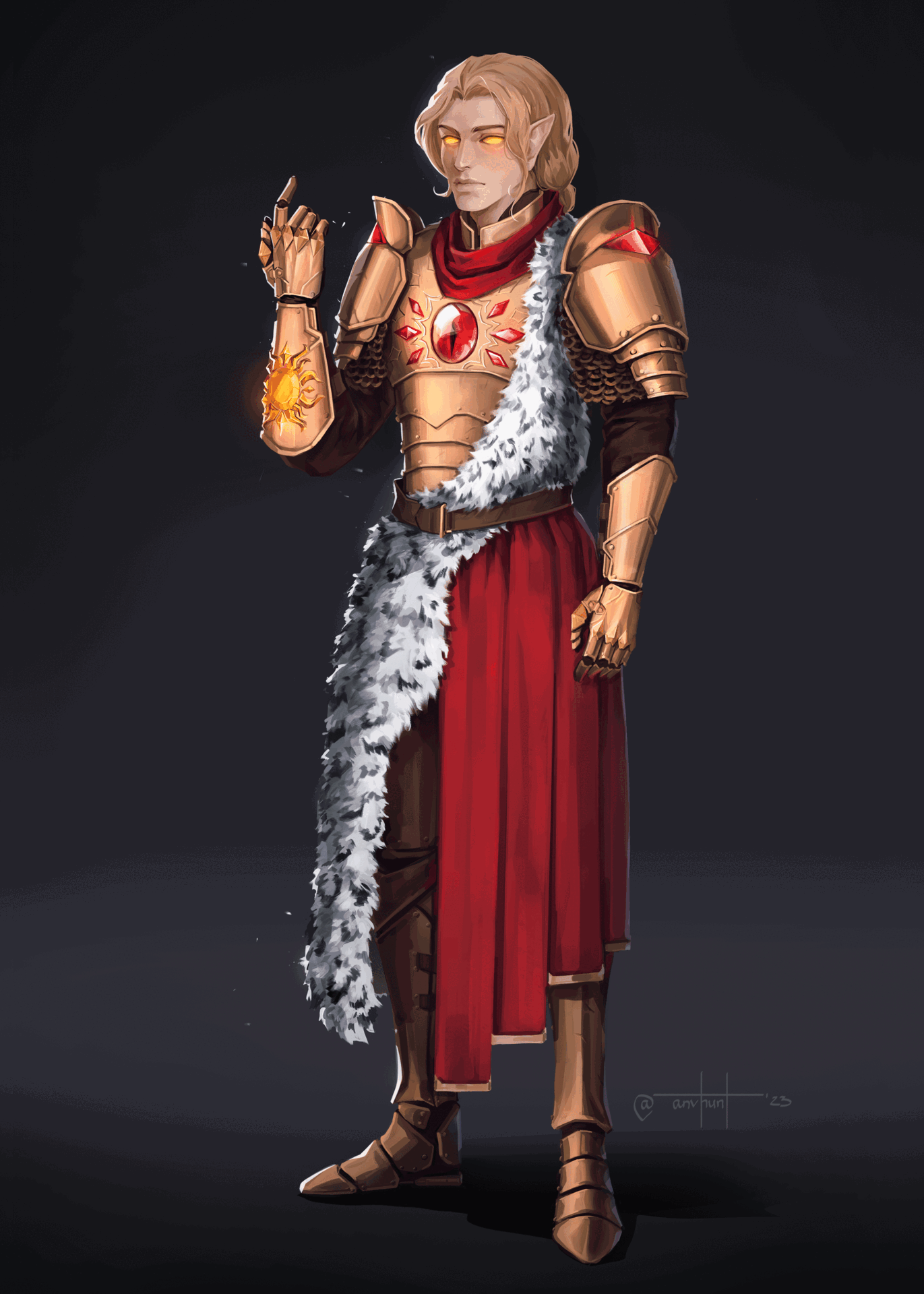-
Posts
2091 -
Joined
-
Last visited
Reputation
3395 Divine
About bickando
-
Rank
off the mfkin leash
- Birthday 05/10/1871
Recent Profile Visitors
31171 profile views
-
A letter, sealed with the signets of the House of Alstion, is returned to Valfleur. LO and greetings unto you Lord Adrian of Valfleur, My royal husband has read your letter and pondered it deeply, but alas; this business of unification and reorganization has left him quite drained, and as his wife, mistress of the household, and Crown secretary it has fallen upon me to pen this letter in his stead. Though we are yet foreign to the ways of the people of the Petra, it has always been such that Aaun has been a godly place, and in that spirit we have followed as best we could the teachings of the Canon and ways of the Saints. John's own ancestor, Saint Alexander of Furnestock, was famously a lover, both of peace and of his maids - and we see that reflected in Article IV of the Codex of Saint Godwin, so named after another of his royal ancestors, which states that assault is to cause harm unto the body of another. Such being as it is, corporal punishment is not legal unto the bodies of Aaunish citizens. That said, let me offer more personal advice as the wife of John, King of Aaun, mother of his royal heir Charles, Lord of Alba, and the daughter of the rulers of a fallen realm. If you should inflict pain upon others, let it be so great and cruel that rebellion is afforded not the meagrest piece of their mind. Build for yourself an impregnable castle of the will, and bolster its defenses with leverage. Crush their spirit so, and the servantry shall have little need of such punishments as whipping. I recommend you ask your tutor of the art of blackmail, child, for it was omitted by our shared government's new codex, and secondly that you hire for yourself a legal expert as insurance. I am told there are many such experts in the Haeseni realm, though I have scant traveled so afar myself. GOD Guides, Her Apostolic Majesty, Amelya of Middelan, Apostolic Queen-consort of Aaun, Princess-consort of Alstion, Duchess of Vienne, the Lowlands, Balemena and Corazon, and likewise consort and Lady of all the other lands and lordships of the Throne of Paradisus
-
IGN: bickando DISCORD: bickando SKIN: purple princess AMOUNT: 35
-
"My daughter is so profound," said Amelya of Middelan.
-
tythus save us
-
"That's the bible not the scrolls," said Amelya, who overheard the elf from across the room everyone in the world sat in whilst reading forum posts.
- 28 replies
-
35
-
Amelya, cradling her youngest children Alexander and Calliope, prepared to attend her favorite sport - people piking each other off in a race.
- 3 replies
-
3
-
- aaun
- whitespire
-
(and 2 more)
Tagged with:
-
ANNOUNCEMENT OF BIRTH, 1963 ♛ HRM the Queen and her youngest daughter, Calliope Analiese c. 1963 By the Royal Household of Alstion; To all to whom these declarations shall be conveyed, we extend our most esteemed greetings. The munificence of The Good Lord, in His boundless benevolence and after a most arduous labour, has designed to bless Us with the birth of a Princess, to the immense delight of the Royal Household. With hearts brimmed with hope and fervor, we embrace the auspicious unfolding of welcoming our sixth-born progeny into the realm. By these letters, therefore, We advertise and proclaim that Our daughter shall be given the name CALLIOPE ANALIESE and that we pray unto Almighty God for her safekeeping, good health, prosperity, and preservation of the Princess, who - upon her birth - stands seventh in like for the throne of Aaun. Given under our Seal at the Hand of Horen, Witnessed by Us and Father Leofric on the 21st day of Harren’s Folly, 1963. WITH GREAT ELATION, His Royal Majesty, JOHN ALEXANDER, by the Grace of GOD, King of Aaun, Prince of Alstion, Duke of Vienne, the Lowlands, Balemena and Corazon, Count of Whitespire, Enswerp and Florentine, Baron of Blanchet, Protector of the Realm Her Royal Majesty, Amelya of Middelan, Queen-consort of Aaun Witnessed and Confirmed by; Father Leofric
- 1 reply
-
19
-
"The plight of my countrymen and homeland only grows by the day and year; shall there be no end to these troubles?" Amelya of Middelan sighed in agreement.
-
"nice" amelya belatedly stated upon seeing the document.
-
Amelya of Middelan suddenly remembers a historical record of the Zann Cultists launching a meteor at the Orenian palace and gloating about it. "The more things change the more they stay the same," spoke the regent of Aaun, p*ladin hater.
- 30 replies
-
4
-
Amelya of Middelan smiled as finally Aaun embraced the Absolutism institution.
- 9 replies
-
11
-
Sanevan prepares their latest pitch deck for spiced abalone. This one would surely impress the guild.
-

1956 Numendilian Consort for Sale [Good Condition]
bickando replied to ImmortalShadowZ's topic in Duchie of Adria
"No lowball offers," commented Amelya as she heard of the new Tomslist posting. -
The Queen-Consort of Aaun received the news not by courier nor by bannerman as the past two battles, but by the return of a broken regiment. Her eye scanned the injured army - when it landed upon John and his retinue, a relieved sigh. Late that night, though, after all others in the court had gone to rest... The light pop of a bottle of champagne could be lightly discerned coming from Amelya's office.
- 52 replies
-
34






.thumb.png.9a38c5747ea7f97097f9c9bfc2dc8bb9.png)
















